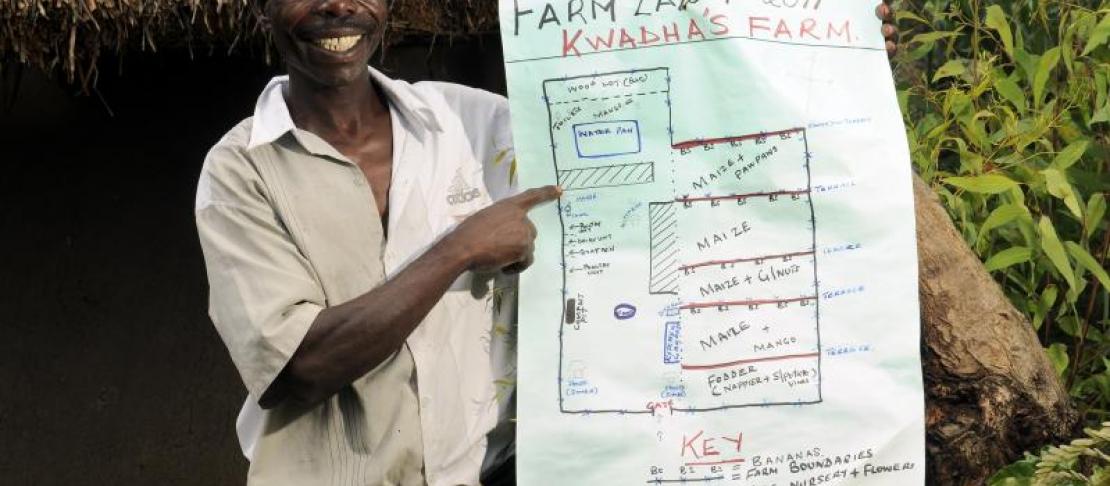Climate-smart agriculture: propaganda or paradigm shift?

Moving beyond the hype to show how the climate-smart agriculture concept can translate evidence into action.
If you are in Paris for the Our Common Future Under Climate Change conference, don’t miss a session on Climate Smart Agriculture: Propaganda or Paradigm Shift? on 8 July at 16:30 CET in UNESCO Fontenoy - ROOM XI.
Next week, some of the groups at the forefront of advancing the climate-smart agriculture (CSA) concept will attempt to clarify exactly how CSA is being put into action.
Like any buzzword, there is a risk that hype overtakes meaningful action. Many agricultural interventions have quickly been labeled as “climate-smart” (or not), without careful analysis of what actually delivers climate-smart outcomes in a specific context. The challenge for decision makers is to sift through all the noise, and find practical tools and solutions. In reality there is plenty of exciting work happening in research, on farms, and in policy forums, to effect real change.
Some concepts become so popular that they stir up a global movement
Some concepts become so popular that they stir up a global movement. Think of the term “sustainable development” which was coined by the Brundtland Commisison in the 1987 report 'Our Common Future' and then popularized at the Earth Summit in Rio de Janeiro, Brazil in 1992. Since then, the term and concept have permeated all kinds of environmental and social initiatives including policies, academic research, university courses, activism, and corporate social responsibility.
A similar phenomenon is happening now with the concept of CSA, which was coined by the UN Food and Agriculture (FAO) in 2010 and now underlies major efforts by UN Agencies, CIRAD, CGIAR and the CGIAR Research Program on Climate Change, Agriculture and Food Security (CCAFS), and work by dozens of country governments, non-governmental organisations and companies through the Global Alliance for Climate-Smart Agriculture (GACSA) and regional alliances. At its core, CSA describes agricultural interventions that 1) sustainably increase agricultural productivity, to support equitable increases in farm incomes, food security and development; 2) help adapt and build resilience of agricultural and food security systems to climate change at multiple levels; and 3) where appropriate, reduce greenhouse gas emissions from agriculture (including crops, livestock and fisheries).
The session is convened by CIRAD (France’s Agricultural Research for Development center), Wageningen University and Research Center, the World Agroforesty Centre (ICRAF), and the CGIAR Research Program on Climate Change, Agriculture and Food Security (CCAFS).
Presenters will lay out the building blocks for scaling up CSA globally including evidence of impact of CSA and tools to tackle implementation (including decision support, how to target practices, encouraging adoption of innovations, and making business cases). This will include a presentation by Patrick Caron of CIRAD, who will highlight some of the big policy movements around CSA. As well, Caitlin Corner-Dolloff, of the International Center for Tropical Agriculture (CIAT), will showcase new decision support tools that can help countries target investments towards climate-smart agriculture practices and programs. A third presenter, Vincent Blok from Wageningen UR, will share findings from an EU project for adoption of CSA innovations. Poster sessions will show diverse examples of CSA in action from around the globe including Southeast Asia, West Africa, East Africa, Latin America, and Europe. The goal is to lay out the state of knowledge on CSA, the challenges around scaling up CSA, and generate a research agenda for CSA in the future.
We welcome participants to attend, share their views, and help identify new areas of work and investment.
Vanessa Meadu is Global Communications and Knowledge Manager for the CCAFS program.
CGIAR Scientists are presenting at the Our Common Future Under Climate Change conference from July 6-10 in Paris. Follow @cgiarclimate and #AgCOP21 on Twitter for live updates from the conference. Read blogs of the conference sessions at ccafs.cgiar.org/blogs/CFCC15
